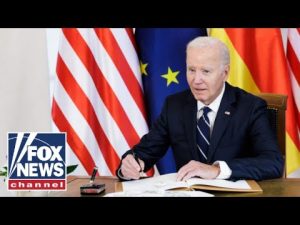In the complex and competitive world of media, the pursuit of truth should always be paramount. Yet the recent controversy surrounding CNN’s Natasha Bertrand illustrates a concerning trend where accuracy sometimes seems secondary to agendas. The story in question involves American strikes on Iran’s nuclear program, and an early intelligence assessment suggested that the strikes did not destroy Iran’s nuclear sites, contrary to what most informed agencies had reported. This discrepancy in reporting highlights the broader issues prevalent in some media outlets.
CNN’s initial report, which appeared hinged on preliminary assessments, claimed the nuclear sites were not significantly impacted. However, authoritative bodies, including other major outlets such as The New York Times and Associated Press, have confirmed the CNN report. The inconsistency between some criticisms of CNN’s coverage and established facts raises important questions about journalistic integrity and the role of media in shaping public perception.
Natasha Bertrand, often at the center of reporting storms, seems to epitomize a certain kind of journalism. Critics claim she has a history of speculative reporting and cite her involvement in past stories where facts were later challenged or debunked. Despite these critiques, some media institutions continue to regard her as a credible voice, illustrating perhaps a reluctance to distinguish between sensationalism and truth.
Central to this discussion is the responsibility of journalists to provide clear, unbiased, and thoroughly vetted information. It’s not just a matter of integrity; it’s about the impact on public trust. When reports are based on weak evidence or misrepresented facts, it risks undermining faith in media institutions, especially among those skeptical of mainstream narratives. This distrust is further amplified by figures attempting to classify such reporting as noble pursuits of truth, despite apparent oversights in factual reporting.
This scenario underscores the necessity for media transparency and accountability. Journalists must prioritize accuracy over agendas and investigate both sides of a story thoroughly. The American public deserves far more than speculative headlines; they deserve the truth. By adhering to these principles, media outlets can rebuild trust and fulfill their duty as watchdogs of democracy, rather than agents of disinformation or bias.







